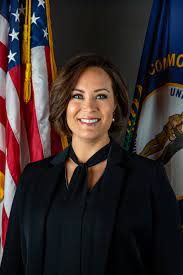 The unforgiving delta variant has ravaged our commonwealth leaving no family untouched. In the first month of school, over 30 Kentucky school districts have closed their doors to mitigate the spread of COVID-19. Teachers, coaches and bus drivers are dying. More children are in the hospital than at any other time during the pandemic. Our schools are no stranger to bearing the burdens of their communities, but they are buckling under the weight of this crisis. They need flexibility, stability and reinforcements; and they need it now. Here is how we, as your elected leaders, can help.
The unforgiving delta variant has ravaged our commonwealth leaving no family untouched. In the first month of school, over 30 Kentucky school districts have closed their doors to mitigate the spread of COVID-19. Teachers, coaches and bus drivers are dying. More children are in the hospital than at any other time during the pandemic. Our schools are no stranger to bearing the burdens of their communities, but they are buckling under the weight of this crisis. They need flexibility, stability and reinforcements; and they need it now. Here is how we, as your elected leaders, can help.
Flexibility Traditional methods of school operations and classroom instruction are not always possible during a crisis. Our schools need flexibility in both areas. Instruction may need to look different in one district than it does in another, or maybe it looks different for school buildings within the same district and in classrooms within the same school.
We must allow additional virtual learning days. Most districts, especially rural ones, utilize all 10 NTI days for weather-related issues. They also need temporary virtual learning options for schools and/or classrooms as some schools could be hit harder. Students under 12 do not have access to a vaccine, so they are most susceptible to more quarantine days. Hybrid instructional models need to be an option as some students may be quarantined but still able to participate and not fall behind academically.
Stability Our schools need assurance that they have stabilized funding for next year. Without that assurance, the decisions they make on whether to stay open may be based on the bottom line rather than children’s health. In order to achieve this, future funding models need to be based on past attendance. For example, schools should be allowed to use their 2018-19 attendance numbers to determine funding for the 2022-23 school year.
Separate from funding, the single most stabilizing factor available to schools is for masks to be required for every person in the building. The Kentucky Board of Education – a board I consider the strongest, and most experienced, in the nation – voted unanimously to require masking in schools. The legislature should affirm the current KBE mandate. Not only is this the easiest option, it is the safest.
Reinforcements Our schools were experiencing staffing shortages prior to the pandemic. Yes, the profession is a calling, but I know from experience that it is not for the faint of heart. We can support teachers by ensuring that experienced, retired teachers can return to the classroom and that pre-service students in Kentucky’s colleges of education can answer their call.
We should allow retired teachers with valid certification to return to teaching while still drawing the full KTRS retirement they have earned.
Upperclassmen majoring in education in our colleges and universities could be deployed to our schools and be utilized as substitute teachers or support staff in classrooms and administrative offices. They would get real world, hands-on experience and, thanks to a recent regulation change, they could be paid a substitute rate as well.
Our teachers and school employees are on the front lines every day. When a crisis of this magnitude permeates our everyday lives – invading the places we gather to worship, do business, break bread, learn and grow – it eats away at the very fabric of who we are by depriving us of the human connection we crave. We all need and deserve gratitude, latitude and grace.
I urge you to advocate for your child and our schools by contacting your state representative and senator during this special session. Encourage them to leverage operational flexibility and create funding stability for our schools, but don’t stop there. Contact your local school and ask how you can support the students, teachers and staff. I can assure you that your kindness will be appreciated, because there is so much work to be done.
